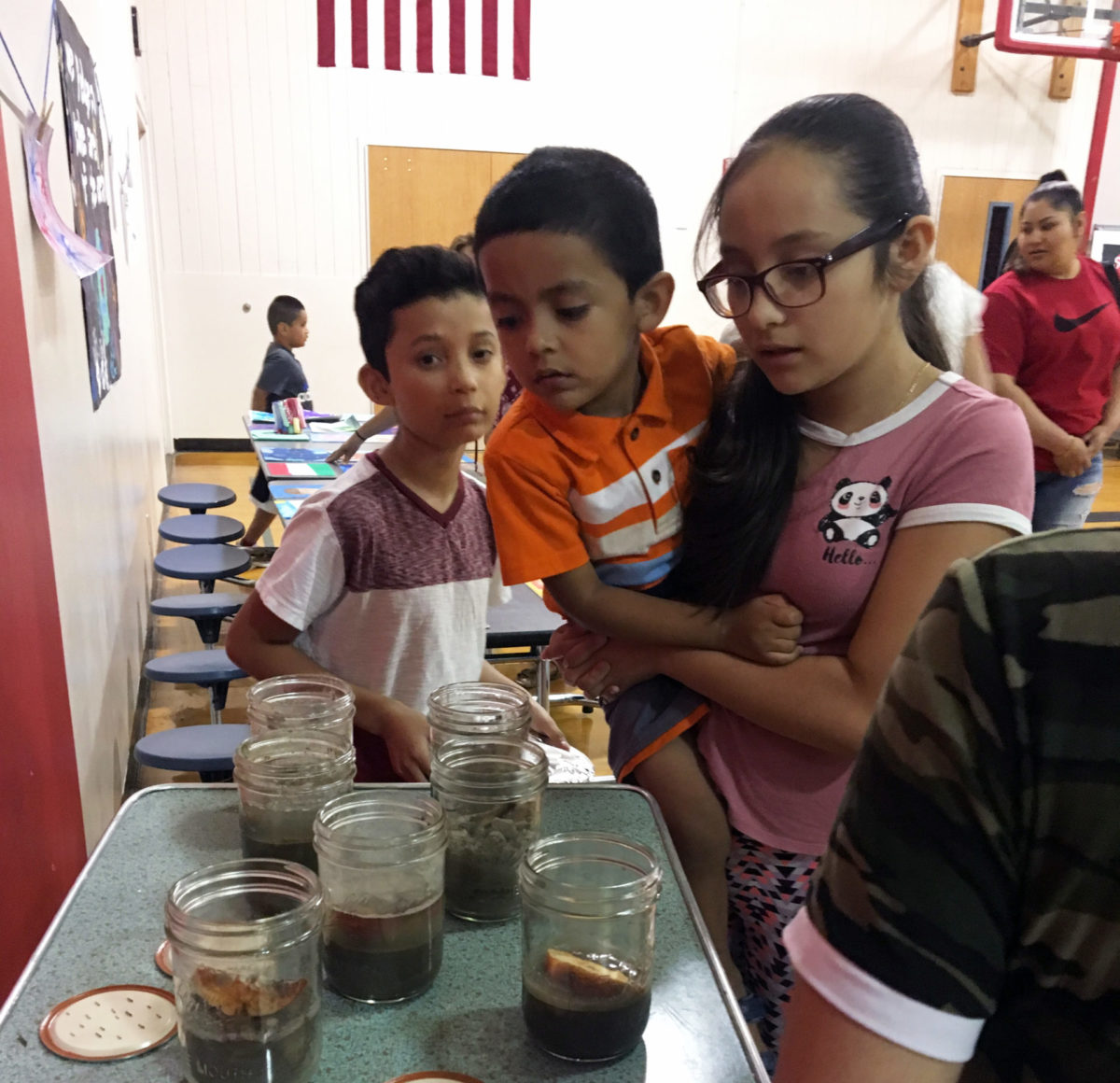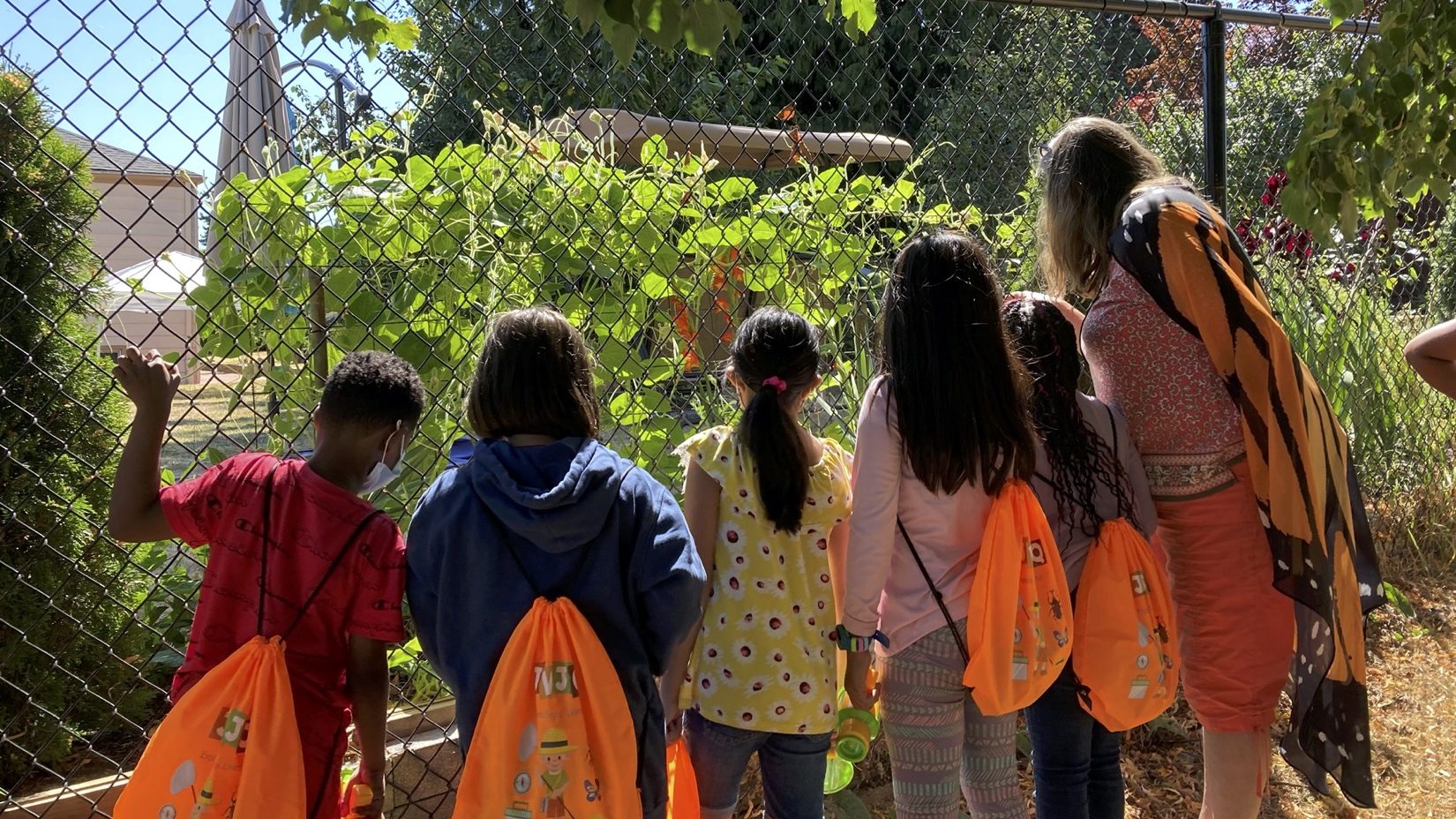
More than 30,000 migrant students are enrolled in Washington schools, and in some school districts, more than half of the student body speaks Spanish at home.
These migrant and bilingual students are particularly vulnerable to the state’s infamous educational opportunity gap. For example, in the Grandview School District in the Yakima Valley, where 93% of the student body identifies as Hispanic/Latino, only 27.5% met the state science standards in 2022. Gaps were only widened during the pandemic, when lack of access to remote learning resources exacerbated the challenges faced by migrant students and their families. In response to requests from its educational partners, EarthGen developed engaging, culturally sustaining science materials specifically for migrant and bilingual students.
Summer Learning in Spanish
Summer programs are an important tool to help close the opportunity gap. Given the significance of agriculture to migrant students’ families, EarthGen’s food-related science unit, Zombie Guacamole, was an obvious choice for translation into Spanish. Adapting Zombie Guacamole for EarthGen’s first migrant summer program gave EarthGen an opportunity to learn about the needs and educational goals of migrant students and their teachers.
During the pandemic, EarthGen created the Monarch Mystery program in English and Spanish. Making important connections between migrant families’ experiences and the migratory life cycle of the butterfly, the standards-based unit teaches students about pollination, metamorphosis, and migration. Teachers who implemented the Monarch Mystery program reported that the unit was responsive to the social-emotional needs of migrant students and that the content was highly interesting and engaging for students and their families.
“This tailored, customized, migrant-inclusive summer school curriculum [was] culturally responsive and beautifully human in how it was student-centered.”
CLINT WECKERLY, MIGRANT ACADEMIC COORDINATOR, Education Service District 189
Closing the Gap
Building on the success of these summer programs, EarthGen began translating all its science units into Spanish, beginning with Breathing Easier, a program that introduces upper elementary school students to air quality issues and environmental justice. At the same time, EarthGen revised its academic programs to be more culturally sustaining so that students of all backgrounds, but especially migrant and bilingual students, can see themselves as scientists.
The retooled programs are now available year-round to English-language learners across the state. As EarthGen continues expanding its Spanish-language resources, more Spanish-speaking students than ever are building their curiosity, exploring local nature, and connecting to their local community with support from EarthGen.

Expanding Inclusion
Expanding on its work with migrant and bilingual students, EarthGen is increasing access to culturally sustaining environmental learning for Indigenous students. With investment from the state and a new partnership with the Upper Columbia United Tribes (UCUT), EarthGen is developing new materials that center and honor the cultural traditions of Indigenous students. Together, UCUT and EarthGen are codeveloping science units that explore the relationships among Northwest watersheds, salmonid species, and tribal communities; that examine air quality on Native lands; and more. Going forward, EarthGen will continue collaborating with its partners to create science learning opportunities that honor students’ first language and culture, equipping them to take action as scientists and as changemakers for a healthy environment.